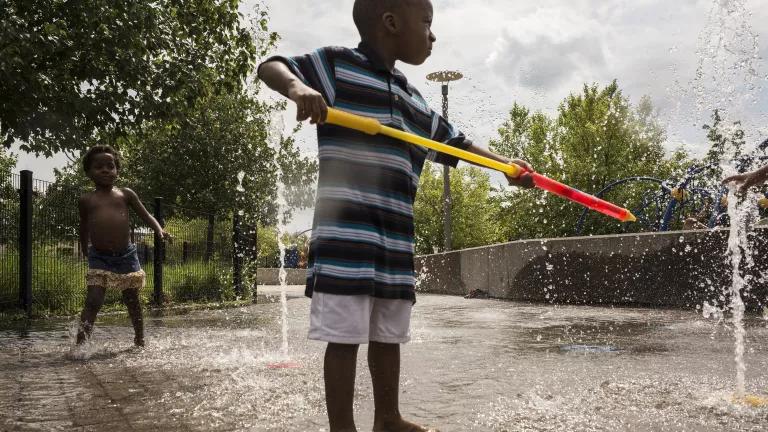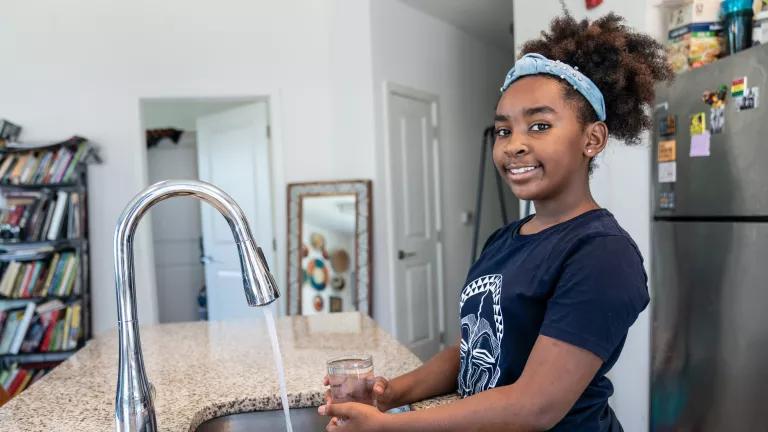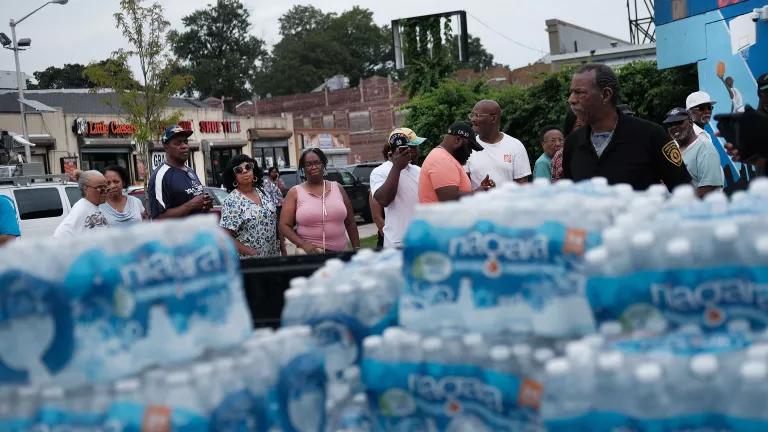Newark Residents Need Emergency Access to Safe Drinking Water

NRDC and a group of public school educators are asking a federal court to require immediate action, as lead levels in Newark’s drinking water remain unsafe.
Levels of lead in Newark, New Jersey’s drinking water continue to exceed federal limits—for more than 18 months now—leaving the health of its residents at risk. Today, NRDC and Newark Education Workers Caucus (NEW Caucus) have responded by asking a federal court to issue an emergency order that would provide safe drinking water to the city’s most vulnerable residents, such as households with pregnant or nursing women and children under the age of six.
Pregnant women and children are most at risk, as even low levels of lead are associated with serious, irreversible damage to developing brains and nervous systems. Lead exposure is also linked to fertility issues, cardiovascular and kidney problems, cognitive dysfunction, and elevated blood pressure in otherwise healthy adults.
“For the last year, Newark officials have been more focused on denying there’s a problem with lead-contaminated drinking water than pursuing solutions. We’re asking the court to order emergency action to ensure that residents who are most at risk have safe water while we take city and state officials to court for violating the federal drinking water law,” says Sara Imperiale, an attorney at NRDC, referring to the lawsuit filed by NEW Caucus and NRDC in June 2018. “The people of Newark deserve safe drinking water now.”
The motion asks the court to require the City of Newark to provide either bottled water or water filters certified to remove lead. In addition to pregnant or nursing women and children under six, the request includes homes where water samples have tested above 10 parts per billion (the World Health Organization guideline for lead in tap water) and homes with lead service lines or lead plumbing. The groups are also asking for various measures to spread public awareness and expedite all water testing requested by residents.
“I’m concerned about the health of my family, my students, and the children of Newark,” said Yvette Jordan, a public schoolteacher and member of NEW Caucus. Recent sampling results show that the drinking water in Jordan’s own home has lead concentrations that are nearly three times the 15 parts per billion federal action level.
There have been long-standing concerns about children’s exposure to toxic levels of lead in Newark. For years, the city has had the greatest number of lead-poisoned children in New Jersey, and in 2016, testing revealed 30 public schools with elevated water lead levels. Access to safe drinking water is particularly important in low-income communities of color like Newark, where residents often face multiple health risks from environmental burdens.



